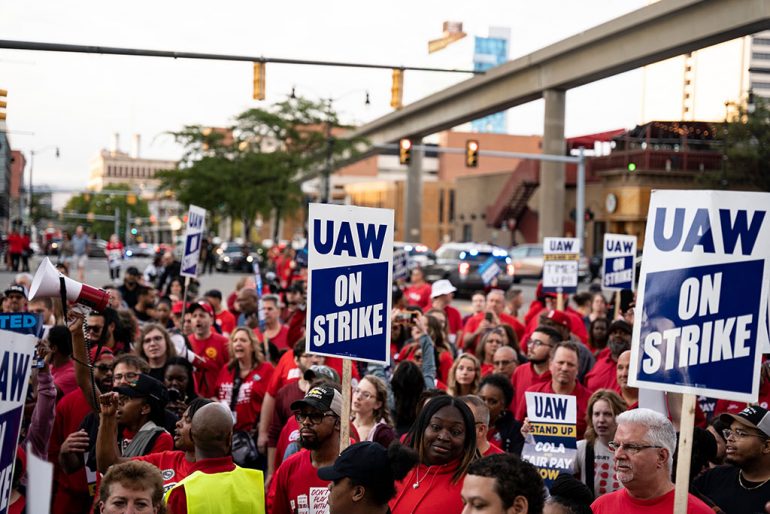
The United Auto Workers (UAW) union is poised to escalate its ongoing strike efforts against major Detroit auto manufacturers if substantial progress is not made in labor negotiations, according to an insider source. UAW President Shawn Fain is expected to reveal new target facilities at 10 a.m. ET on Friday through online statements, with workers walking out from those designated sites at noon. This move signals the UAW’s commitment to continuing the strikes that have been ongoing since September 15th, affecting automakers General Motors (GM), Stellantis (formerly Chrysler’s parent company), and Ford Motor.
In a significant departure from tradition, where the UAW typically negotiates with one automaker first to establish a pattern for subsequent agreements, Fain chose to target all three automakers simultaneously. Talks between the UAW and GM were scheduled for Wednesday afternoon, marking a critical juncture in the ongoing negotiations.
Also, don’t forget that you can get discounted new car pricing with a free quote through qualified local dealer partners.
The central issues at the heart of the dispute include compensation, retirement benefits, and time off. Fain has consistently advocated for a 40% pay increase over a four-year period, while the automakers have presented separate proposals offering approximately 20%. Additionally, the UAW is pressing for the elimination of the two-tier wage system, which currently allows new hires to earn significantly less than veteran workers.
The impact of these prolonged strikes, especially in factories manufacturing large pickup trucks, could be financially detrimental to the automakers, potentially costing them billions in revenue and profit. Analysts estimate that each of the major automakers, including GM, Ford, and Stellantis, earns as much as $15,000 per vehicle for their respective large pickup models.
These strikes occur in the context of a broader industry transition towards electric vehicles, necessitating cost reductions, which, in some instances, involve job cuts. The UAW, representing substantial workforces at GM, Ford, and Stellantis, initiated negotiations with these companies in July.
The political spotlight has also shone on these labor disputes, with President Joe Biden making a significant gesture by joining striking autoworkers in Michigan. He voiced support for their demand for a 40% pay raise, asserting that they deserve even more. This event marked the first visit by a U.S. president to striking workers in modern history. Former President Donald Trump, currently the front-runner for the 2024 Republican nomination, is scheduled to address workers in Michigan at a non-union auto manufacturer, underscoring the importance of union support in the upcoming presidential election, despite unions representing a relatively small portion of the U.S. workforce.